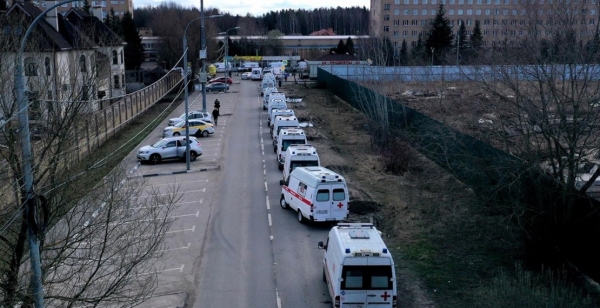
Health system Russia has faced problems in previous years and now her during coronavirus call a critical shortage of qualified medical personnel. The medical students came to the rescue and are at the forefront of the fight against coronavirus. They told us how things are in the main infectious diseases hospitals, where today there are patients with coronavirus.
Today in Moscow Russian – the epicenter of the epidemic of coronavirus, the medical students are sent to hospitals overwhelmed by the growth in the number of infected patients. Will tell about these characters and their eyes will see what is happening “on the front”.
How are things going with the treatment of coronavirus in Moscow: the student experience
In between preparing for the exams next week Tatiana, a 22-year-old medical student at First Moscow state medical University, works as a nurse at the Kommunarka – coronavirus main Moscow hospital.
For a person who has only eight weeks of clinical experience at last year’s summer internships, work in the midst of a pandemic is a step forward. For example, during a shift on Monday, the student helped one professional nurse that supports the 17 patients.
Tatyana, who asked not to specify his name, is one of the hundreds of students who are at the forefront of the fight against coronavirus in Moscow, the epicenter of the outbreak in Russia.

Alex, a 20-year-old third-year student, helped with the treatment of 60 patients with suspected coronavirus from Tuesday through Wednesday for 24-hour shift in the University clinical hospital № 3. The hospital began to receive patients with suspected coronavirus on Tuesday morning.
At the weekend Mary, 22-the summer student of the fifth course, was under observation for 60 patients with suspected coronavirus, which it led together with one professional nurse for 24 hour shift in the University clinical hospital № 2.
“I set 100 droppers during this shift,” said Maria. “At the end of your shift, you can’t feel my arms, legs and back.”
In recent days The Moscow Times has been in regular contact with 11 to medical students in the leading universities of Moscow, which work directly with suspected coronavirus patients as nurses or orderlies. They painted a picture of the medical system, balancing in its fight against the pandemic, as hospitals become more and more loaded.
All but one of the students, asked not to specify their names to avoid repercussions from their universities and employers.
The fact that these students play such a key role in the battle, also highlights the lack of resources in the domestic health care system.

On the forum at the end of last month, Andrei Klepach, chief economist at VEB.RF state development Corporation, noted that “our health care system, perhaps as a result of many measures for optimization – reducing the number of beds and doctors, including specialists in infectious diseases that occurred from 2012 – very vulnerable to such a sharp increase in workload”.
“A shortage of beds for patients with coronavirus in Moscow”
When The Moscow Times began to interview the Moscow medical students, many said they cope with the situation.
“The work is grueling, but overall in Kommunarka more or less organized,” – said Monday the 23-year-old fifth-year student Nikita, working in the main hospital. At that moment, however, the epidemic is still gaining momentum.
As of Thursday, six days after Moscow mayor Sergei Sobyanin said that the country is only in the “foothills” its peak of coronavirus, the Russian capital has officially announced 16 of 146 cases of coronavirus – or 58% of the total number of cases in Russia.
The seriousness of the situation prompted President Vladimir Putin on Monday to tell the governors: “we Have a lot of problems and we have nothing to brag about, we have no reason, and we certainly can’t relax.”
On Tuesday, when the social networks began to appear photos of the long lines of ambulances in hospitals, waiting for hours to drop off patients. At the same time, Moscow Ministry of health warned that the city might end up bed for two weeks, noting that in a hurry to change the profiling 24 of the hospitals to work with patients who have the coronavirus, adding 21 000 beds.
“We still have a few beds, we can count them on one hand”, – said late on Tuesday, the 23-year-old student of the sixth course Lily working in the Federal scientific-clinical center of otorhinolaryngology.
In Moscow, almost certainly many more cases than officially registered.
Health officials acknowledged that the testing procedures in Russia are insufficiently precise to cover all cases, and that the laboratory of the country has been overwhelmed just by the numbers.
A new hospital in Moscow for treatment of coronavirus
10 March – eight days after Russia announced its first case of coronavirus – Moscow began the construction of a hospital with 500 beds for patients with the coronavirus, which is now already open.
Then, on March 15, Russia began to mobilize medical students to work in hospitals, designed for patients with coronavirus, said they got to Daria, coordinator of the Moscow regional program of the Ministry of health “Medical volunteers”.
Since then, she said, the state program attracted 600 student volunteers from the four main medical schools of the Russian capital.
According to Belkovoi, the majority of students – those who already have the right to health care – work in the so-called “red zone” that leads to direct contact with the coronavirus.
According to Belkovoi to work in the red zone on its programme, the volunteers receive a “meager salary” as a technical aid. If they become infected on the job, students are entitled to a compensation in the form of medicines and treatment, and therefore the Ministry of health “stresses” that students must be formally employed.
Other volunteers work in the so-called “green zones” – Mans call centers, sorted patients fill out the questionnaire.

“However, they are all volunteers,” said they got. “It is clear that they understand:” If not us, then who?”
“It is in the nature of our country and our people, to act selflessly, without thinking that it will come reward,” she added.
Belkovoi figures, however, do not account for all the students who have joined the fight.
Other organizations have also rallied volunteers, and three of the 11 students who spoke with The Moscow Times, explained that they had signed contracts with the hospitals directly without going through other channels. They also work in hospitals, not listed Belkovoi as relying on student volunteers.
So some of them will probably slip away from the account of the Ministry of health. Two students, for example, said that they are working in the “red zone” without payment.
“Can’t look away”
According to the newspaper “Vedomosti”, in the period from the beginning of 2013 to the end of 2019 health reform in Russia more than halved the medical staff, including nursing assistants and nurses, and reduced the number of full-fledged nursing staff by 9.3%.
“It is clear that they use the students because not enough staff,” said Alice, 25-year-old fourth year student working in the Federal scientific-clinical center of otorhinolaryngology.
“But we realized the seriousness of the situation and could not turn away”.
Since 2011 Moscow decreased almost 2,200 beds for the treatment of infectious diseases, according to Vedomosti.
For many years health care workers have protested against the reforms.

In October, the Russian medical Association sent a letter to Putin with the requirement to cancel policies pursued by the government.
“Further a destructive policy towards public health and medicine, as well as legal and socio-economic status of health workers can lead to disaster,” Vedomosti said.
And in other countries for the treatment of coronavirus?
Although Russia is not the only country that joined human resources in the worst pandemic in the world for more than a century, our students seem to be more firmly rooted at the forefront of the battle.

In Germany, while students voluntarily worked in hospitals, Deutsche Welle reported earlier this month that they had been requested less practical work – only record symptoms, collect samples and determining what kind of people the patient had contact.
According to Belkovoi, while everyone who leaves their home during the outbreak are at risk of infection risk in the hospital increases “even more.”
“Students know what they signed,” she said.
The risks are high, but we accepted them
In reality, however, health care workers are at much higher risk than others, again and again being exposed to significantly higher viral loads, believe medical experts.
In Italy, the European epicenter of the pandemic, more than 100 doctors have been killed by the coronavirus, and the share of health workers accounted for 10% of the total number of registered infection cases in the country.
These risks may soon hit the Moscow and medical students.
Wednesday morning Alice from the Federal scientific-clinical center of otorhinolaryngology, told The Moscow Times that they had run out of personal protective equipment (PPE).
In new York, where so far has killed at least six nurses, it is believed that this occurred due to the lack of PPE.
Meanwhile, in Kommunarka in the morning Nikita observed a shortage of certain drugs, including intravenous paracetamol to reduce fever in patients. He also came to terms with the difficulties that lie ahead.
“People are asking more oxygen, and you just don’t know who to help first,” he said. “Today was the hardest day of all.”
According to the materials of The Moscow Times.



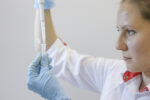


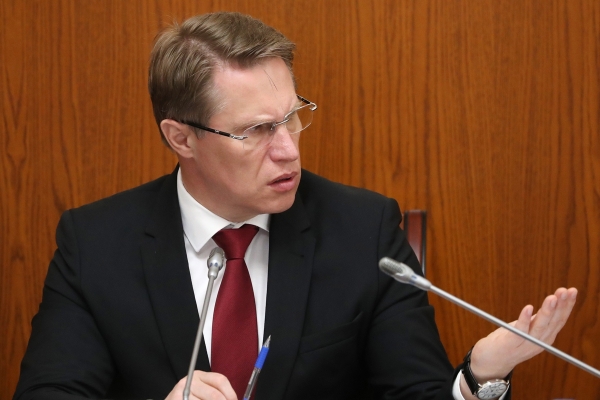
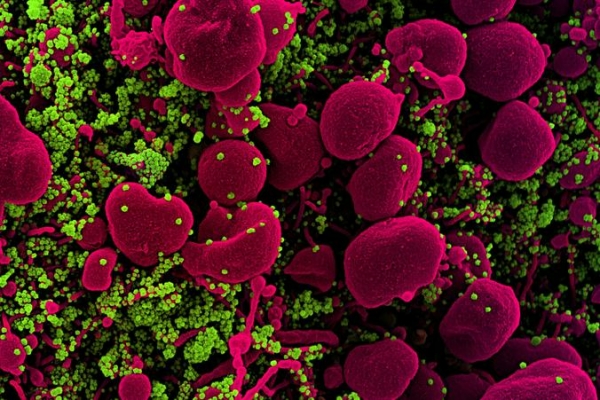
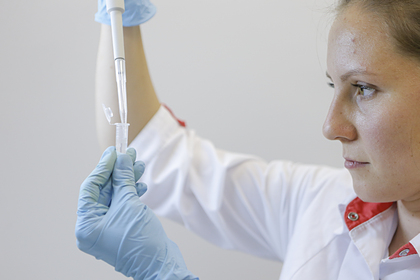
More Stories
Color wheel online
The Ministry of health has promised to disclose information about the vaccine trials from COVID-19
Called “atypical” symptoms of coronavirus